Filter by
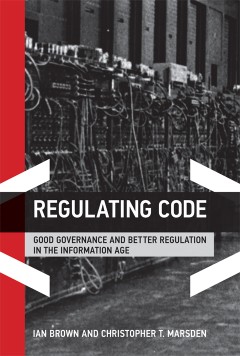
Regulating Code: Good Governance and Better Regulation in the Information Age
The case for a smarter “prosumer law” approach to Internet regulation that would better protect online innovation, public safety, and fundamental democratic rights. Internet use has become ubiquitous in the past two decades, but governments, legislators, and their regulatory agencies have struggled to keep up with the rapidly changing Internet technologies and uses. In this groundbreakin…
- Edition
- -
- ISBN/ISSN
- 9780262312943
- Collation
- -
- Series Title
- -
- Call Number
- -
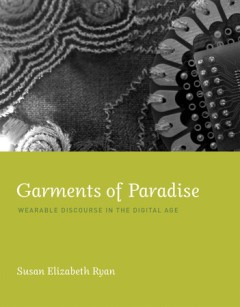
Garments of Paradise: Wearable Discourse in the Digital Age
"Wearable technology--whether a Walkman in the 1970s, an LED-illuminated gown in the 2000s, or Google Glass today--makes the wearer visible in a technologically literate environment. Twenty years ago, wearable technology reflected cultural preoccupations with cyborgs and augmented reality; today, it reflects our newer needs for mobility and connectedness. In this book, Susan Elizabeth Ryan exam…
- Edition
- -
- ISBN/ISSN
- 9780262323963
- Collation
- 1 online resource
- Series Title
- -
- Call Number
- -
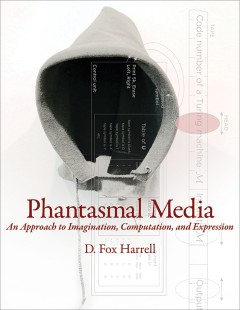
Phantasmal Media: An Approach to Imagination, Computation, and Expression
"In Phantasmal Media, D. Fox Harrell considers the expressive power of computational media. He argues, forcefully and persuasively, that the great expressive potential of computational media comes from the ability to construct and reveal phantasms -- blends of cultural ideas and sensory imagination. These ubiquitous and often-unseen phantasms -- cognitive phenomena that include sense of self, m…
- Edition
- -
- ISBN/ISSN
- 9781461952176
- Collation
- 1 online resource (xix, 420 pages) :illustrations
- Series Title
- -
- Call Number
- -
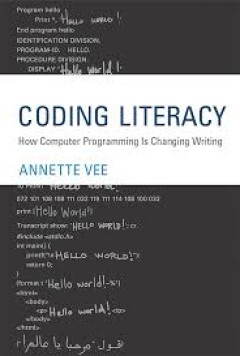
Coding literacy how computer programming is changing writing
The message from educators, the tech community, and even politicians is clear: everyone should learn to code. To emphasize the universality and importance of computer programming, promoters of coding for everyone often invoke the concept of "literacy," drawing parallels between reading and writing code and reading and writing text. In this book, Annette Vee examines the coding-as-literacy analo…
- Edition
- -
- ISBN/ISSN
- 9780262340236
- Collation
- 1 online resource (xi, 361 pages) :illustrations, maps.
- Series Title
- -
- Call Number
- -
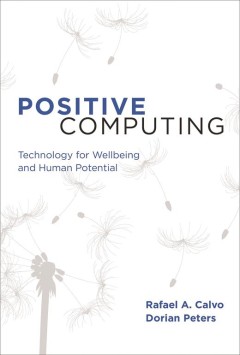
Positive computing : technology for wellbeing and human potential
"On the eve of Google's IPO in 2004, Larry Page and Sergey Brin vowed not to be evil. Today, a growing number of technologists would go further, trying to ensure that their work actively improves people's lives. Technology, so pervasive and ubiquitous, has the capacity to increase stress and suffering; but it also has the less-heralded potential to improve the well-being of individuals, society…
- Edition
- -
- ISBN/ISSN
- 0262325683
- Collation
- 1 online resource (x, 288 pages).
- Series Title
- -
- Call Number
- -
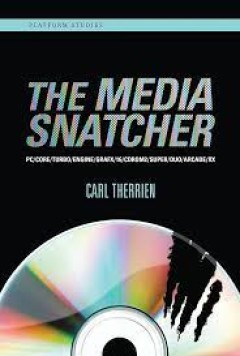
The media snatcher PC CORE TURBO ENGINE GRAFX 16 CDROM2 SUPER DUO ARCADE RX
OCLC-licensed vendor bibliographic record.
- Edition
- -
- ISBN/ISSN
- 9780262354868
- Collation
- 1 online resource (208 pages).
- Series Title
- -
- Call Number
- -

Warren's Abstract Machine: A Tutorial Reconstruction
"This tutorial demystifies one of the most important yet poorly understood aspects of logic programming, the Warren Abstract Machine or WAM. The author's step-by-step construction of the WAM adds features in a gradual manner, clarifying the complex aspects of the design and providing the first detailed study of WAM since it was designed in 1983. Developed by David H.D. Warren, the WAM is an abs…
- Edition
- -
- ISBN/ISSN
- 9780262255585
- Collation
- 1 online resource (xvi, 114 pages) :illustrations.
- Series Title
- -
- Call Number
- -

Calculating a Natural World: Scientists, Engineers, and Computers During the …
How the complex interplay of academic, commercial, and military interests produced an intense period of scientific discovery and technological innovation in computing during the Cold War.OCLC-licensed vendor bibliographic record.
- Edition
- -
- ISBN/ISSN
- 9780262266895
- Collation
- 1 online resource (ix, 427 pages) :illustrations.
- Series Title
- -
- Call Number
- -
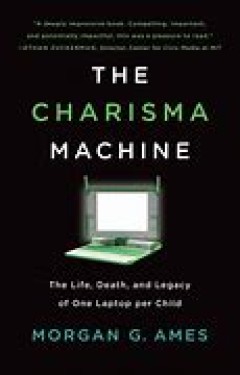
The Charisma Machine: The Life, Death, and Legacy of One Laptop per Child
A fascinating examination of technological utopianism and its complicated consequences.OCLC-licensed vendor bibliographic record.
- Edition
- -
- ISBN/ISSN
- 026235389X
- Collation
- 1 online resource.
- Series Title
- -
- Call Number
- -
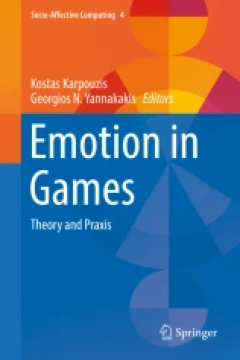
Emotion in Games Theory and Praxis
The core message of this book is: computer games best realise affective interaction. This book brings together contributions from specialists in affective computing, game studies, game artificial intelligence, user experience research, sensor technology, multi-modal interfaces and psychology that will advance the state-of-the-art in player experience research; affect modelling, induction, and s…
- Edition
- -
- ISBN/ISSN
- 978-3-319-41316-7
- Collation
- 11 b/w illustrations, 32 illustrations in colour
- Series Title
- -
- Call Number
- -
 Computer Science, Information & General Works
Computer Science, Information & General Works  Philosophy & Psychology
Philosophy & Psychology  Religion
Religion  Social Sciences
Social Sciences  Language
Language  Pure Science
Pure Science  Applied Sciences
Applied Sciences  Art & Recreation
Art & Recreation  Literature
Literature  History & Geography
History & Geography